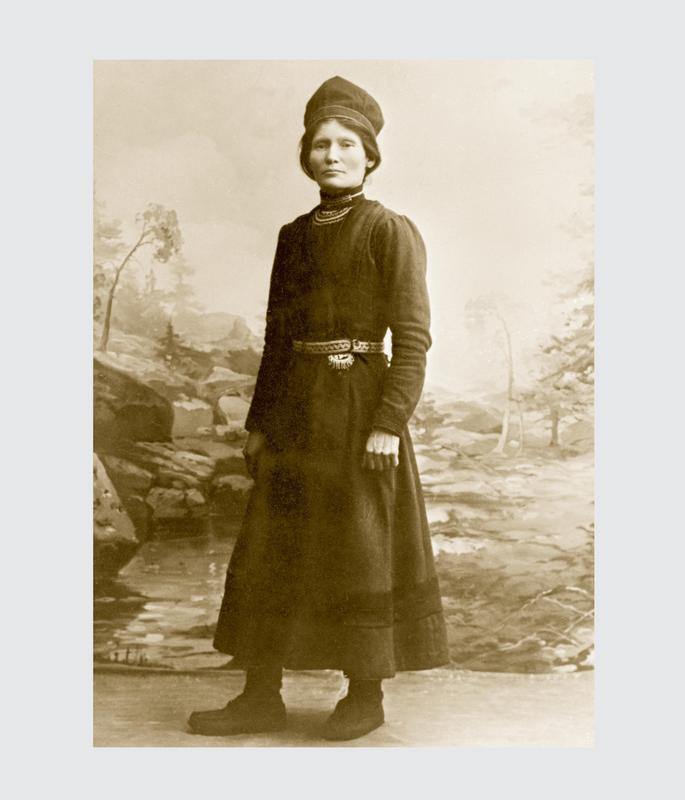- 1/1
Owner: Nasjonalbiblioteket
Who?
Elsa Laula Renberg is a pioneer in the history of Sami organizations. She founded the world’s first Sami association (in Sweden) in 1904, and organized the first nationwide Samicongress in 1917.
Where?
Elsa Laula Renberg was born in Hattfjelldal in Nordland. Her parents were raindeer farmers in the border area between Helgeland in Norway and Västerbotten Lappmark in Sweden. Established a home as a married woman, first in Toven, before the family moved to Brurskanken reindeer grazing district and settled down just south of Mosjøen (Norway).
What?
Elsa Laula got a higher education, which was unusual for Sami girls at the time. She went to secondary school in Örebro and was educated as a midwife in Stockholm. Laula became the leader of Lapparnas Sentralforbund (The Central Lapp Union) when it was founded in Stockholm in 1904. The same year, she published a pamphlet, Innför Lif eller Død? Sanningsord i de Lappska Förhållandena (Within Life or Death? True words about Lapp conditions). In this, she discussed the Sami rights to land, water and education. Laula was one of three Sami who was granted an audience with King Oscar II.
Laula Renberg travelled around in Sami Norway from Trondheim in the south to Finnmark in the north and held lectures on Sami issues. In 1908, she took the initiative to found Brurskankens Lapforening (The Lapp Union of Brurskanken) in Helgeland, and in 1910, she founded Brurskankens Lappekvinde Forening (The Lapp Women’s Association of Brurskanken), a union for Sami women. For the election in 1924, the Sami asked for their own list in Norland, with Elsa Laula Renberg in second position. The opening day of the first Sami Congress was in 1917, where Laula Renberg was themain organizer, is still celebrated every February 6 as the Sami people’s National Day.
Main project:
Elsa Laula Renberg had deep roots in the traditional, nomadic sami reindeer farming culture. This culture had milk, not meat, as its main source of income. She was keen to presere Sami values and traditions.
